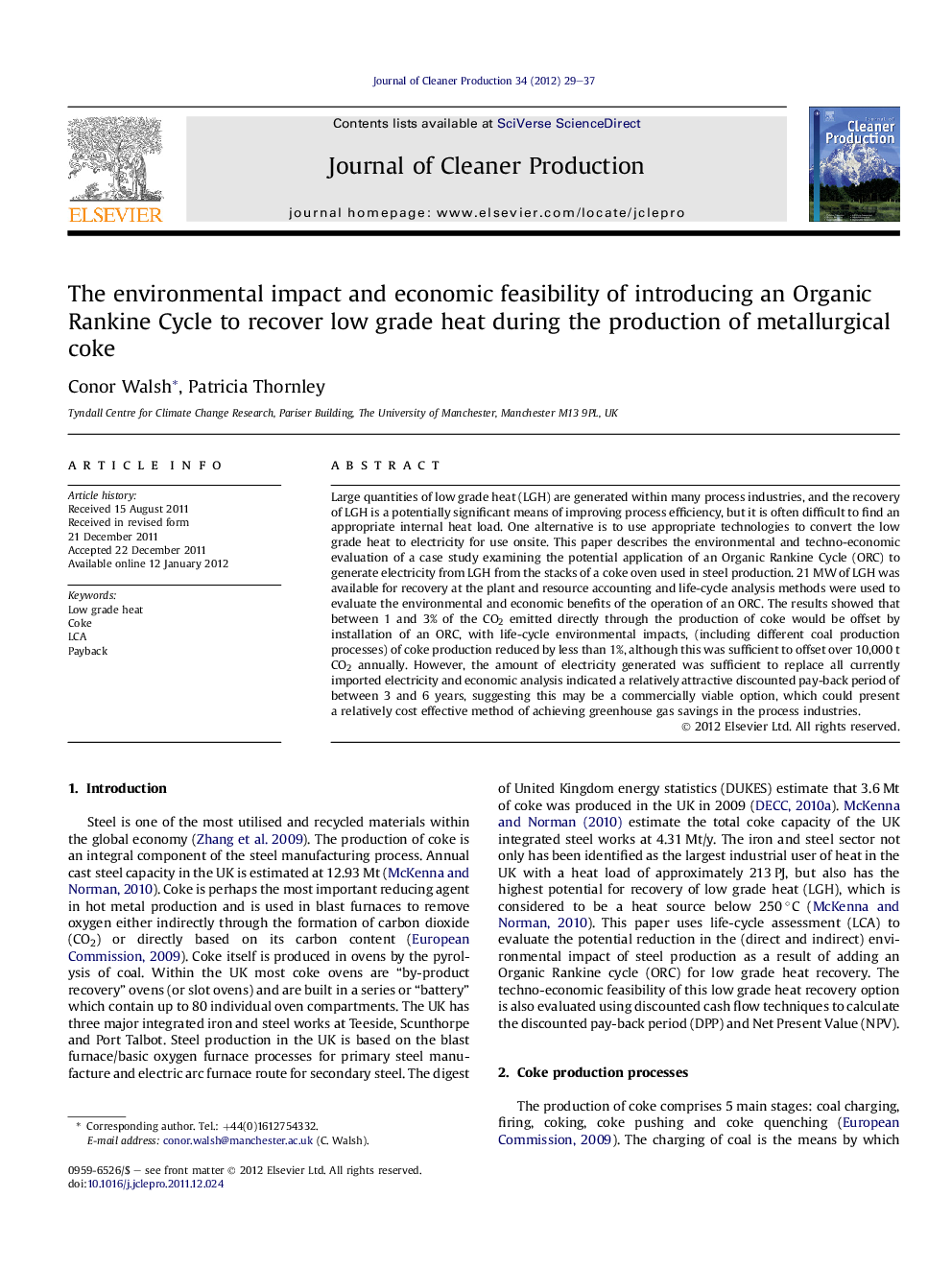| کد مقاله | کد نشریه | سال انتشار | مقاله انگلیسی | نسخه تمام متن |
|---|---|---|---|---|
| 1745609 | 1522212 | 2012 | 9 صفحه PDF | دانلود رایگان |

Large quantities of low grade heat (LGH) are generated within many process industries, and the recovery of LGH is a potentially significant means of improving process efficiency, but it is often difficult to find an appropriate internal heat load. One alternative is to use appropriate technologies to convert the low grade heat to electricity for use onsite. This paper describes the environmental and techno-economic evaluation of a case study examining the potential application of an Organic Rankine Cycle (ORC) to generate electricity from LGH from the stacks of a coke oven used in steel production. 21 MW of LGH was available for recovery at the plant and resource accounting and life-cycle analysis methods were used to evaluate the environmental and economic benefits of the operation of an ORC. The results showed that between 1 and 3% of the CO2 emitted directly through the production of coke would be offset by installation of an ORC, with life-cycle environmental impacts, (including different coal production processes) of coke production reduced by less than 1%, although this was sufficient to offset over 10,000 t CO2 annually. However, the amount of electricity generated was sufficient to replace all currently imported electricity and economic analysis indicated a relatively attractive discounted pay-back period of between 3 and 6 years, suggesting this may be a commercially viable option, which could present a relatively cost effective method of achieving greenhouse gas savings in the process industries.
► Low grade heat recovery through an ORC appears a feasible means of reducing carbon dioxide emissions.
► Results suggest that direct carbon savings are less than 2%.
► However the offsetting of the external purchasing of electricity results in a favourable pay-back period.
► The life-cycle savings appear negligible, especially when compared with the potential impact of a change in coal type.
► However important to remember that an ORC cannot affect an reduction in coal or gaseous feedstock requirement.
Journal: Journal of Cleaner Production - Volume 34, October 2012, Pages 29–37